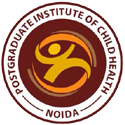Scientific symposium was organised by Department Of Medical Genetics and department of Pathology at Post Graduate Institute of Child Health on 23/04/2022; this was a truly international meet as participants from outside India had also joined online. Around 300 doctors across the country and worldwide joined this session held in hybrid mode (offline/online). The speakers included Dr Sheetal Sharda (Ahmedabad), Dr Meenakshi(Chandigarh), Dr Anup(Mumbai), Dr Aradhana (Delhi) and Dr Mayank Nilay and Dr Jyotsna Madan(Dean) from PGICH. The topics which were discussed included Fetal autopsy and placenta, genetic problems related to couples of child bearing age and pregnant, cancer genetics and newborn screening. Placenta is an important tissue which should be always examined by the obstetrician because pathological changes in Placenta can give information about the diseases in newborn and mother. Newborn screening should be an integral part of healthcare as it helps in early detection of various genetic and metabolic disorders, if detected in neonatal stage, proper treatment and surveillance will prevent irreversible damage to the growing child. Couple carrier screening for various genetic disorders is also getting common and very soon will be a test for bride and groom; Dr DK singh(CMS) told that Couple carrier testing and matching for genetic disorders will soon be the Kundli match for those going to get married. Dr Mayank Nilay informed that countries like Turkey have made carrier screening for Spinal Muscular atrophy (SMA) compulsory for all couples; Dr Mayank’s research on Carrier status of SMA had shown that the condition is also quite common in India (published in American Journal of Medical Genetics) and hence screening for SMA should also be done on a large scale as being done for thalassemia at present. Dr Mayank Nilay (Assistant Professor) told that more such interactive sessions will be held in future under the patronship of Professor Dr Ajai Singh (Director, PGICH, Noida). Dr Ajai Singh told that apart from providing super speciality care to children at PGICH; the Institute also serves as a nodal centre for training of doctors and researchers , not only from UP but across the country.
Super Speciality Paediatric Hospital & Post Graduate Teaching Institute, Noida


सुपर स्पेशलिटी बाल चिकित्सालय एवं स्नातकोत्तर शैक्षणिक संस्थान
बाल चिकित्सा एवं स्नातकोत्तर शैक्षणिक संस्थान
Postgraduate Institute of Child Health
(An autonomous Institute under Government of Uttar Pradesh)
+91-120-2457000 childpginoida@gmail.com
Formerly known as "Super Speciality Paediatric Hospital and Post Graduate Teaching Institute"
- Home
- About Us
- Administration
- Hospital
- Departments
- BioChemistry
- ENT
- Medical Genetics
- Microbiology
- Neonatology – MRH (Maternal Reproductive Health)
- Ophthalmology
- Paediatric Anaesthesia
- Paediatric Cardiac Surgery
- Paediatric Cardiology
- Paediatric Dentistry
- Paediatric Gastroenterology
- Paediatric Hemato-Oncology
- Paediatric Medicine
- Paediatric Neurology
- Pediatric Orthopaedics
- Paediatric Surgery
- Paediatric Urology
- Pathology
- Plastic Surgery
- Radiology
- Transfusion Medicine and Blood Bank
- Academics
- Research
- Recruitment
- Tender
- Downloads
Scientific Symposium
You are here:
- Home
- Scientific Symposium

















